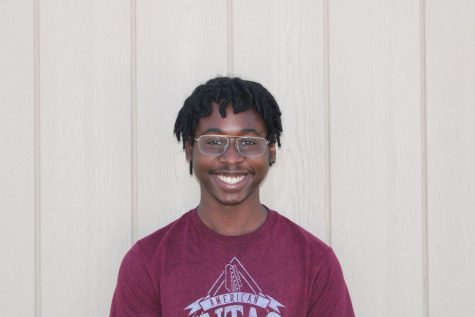Police Brutality
February 10, 2023
On the night of January 7, a man in Memphis was driving home when he was stopped inside his neighborhood. 29-year-old Tyre Nichols was pulled out of his car, tased, pepper sprayed, and beaten for seven minutes during the traffic stop despite showing little to no signs of resisting.
For generations, this story has been told countless times before, shouted from the rooftops through different voices sharing the same grief, and falling upon deaf ears growing accustomed to these same words: “Another black man is dead.”
The only difference this time is that it was other black men that killed him. After instances like these, talks throughout the black community often sound like, “Why do we keep hurting ourselves? Why are we making it harder for change?” Instead, we should ask, “Why have we been conditioned to hurt ourselves? What can we do to change this?” We’ve seen cases of extreme police brutality before, and can be linked to race. A saying I’ve often heard is “your skin is your sin.” There are many people in our society who will use their position of power to pre-determine you as guilty based on skin color. But there may be more to it. Oftentimes when a police officer wrongfully kills someone they are unqualified to handle the situation, abusing their position of power over people. Looking from a broader perspective, police brutality is not only an issue of racism and stereotypes. The power imbalance given to people who don’t have the character or responsibility to not misuse it is just as much a part of the problem. The police officers that killed Nichols didn’t do so simply because of race. They did it because they believed their badges granted them the superiority and impunity to do it. This is a matter of racial, social, and historical factors that influence us. This is a matter of the structure of our society, and how it shapes us.
Black families have to teach their children how to conduct themselves in a certain way around police officers. Keep your hands visible on the wheel. Ask permission to reach for anything, and make no sudden movements. Don’t speak out of turn, and speak with respect, addressing them as officers or sir. Do not argue. Know your rights. You can ask why you’ve been pulled over, but only once, and if they don’t tell you just comply anyway.
These are the things instilled into black children from a young age, not just out of caution but as a harsh necessity. The first thing black young adults think when they are pulled over is: “It’s okay. I did nothing wrong” Right after that comes: “That doesn’t matter,” then fear. Fear should not be the first response to an officer pulling you over, but for countless black men and women in America, it is an undeniable reality to associate such a situation with fear. When every day you see an innocent person who shares your skin color being harassed, violated, or murdered by those who are meant to keep us safe, when black people make up nearly a third of police killings annually, you cannot help but move through society with the unease that, in the wrong situation and no matter how well you handle it, it could be you.
No one expects a simple traffic stop to turn into a lethal shooting or beating. 34 years ago, Rodney King couldn’t have foreseen his brutal beating at the hands of LAPD officers. George Floyd didn’t wake up on the morning of his killing knowing he’d be suffocated for nine minutes while pleading for his life. When stopped for a traffic violation, Duante Wright had no way of knowing a police officer would “accidentally” reach for a gun instead of a taser and end his life. 12-year-old Tamir Rice, killed while playing with a toy gun in a Cleveland park, had no idea he would be shot by police within seconds of them arriving.
